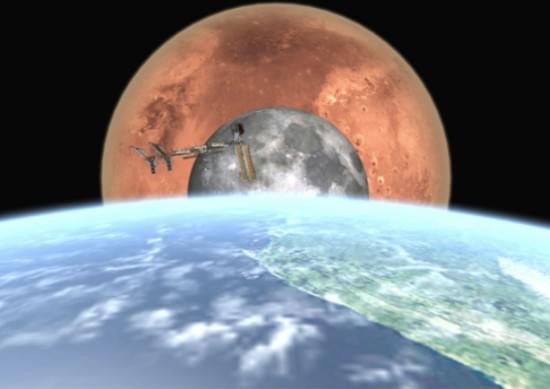The ISS is 1,000 times closer to us than the Moon, and 600,000 times closer than Mars. To get to the latter and back safely, we need faster rocket propulsion systems.
Using the conventional chemical rocket technology we have perfected at this time, a single mission to Mars will require the launch of a mass equal to 10 ISS to be put into space. It will involve at least 30 and as many as 40 of the largest rockets we have today to put the spacecraft, crew and fuel needed for the mission. That doesn’t include adding reserves of fuel placed strategically along the route should a problem arise going to Mars and coming back. Brown states that the total cost of a single mission using this approach would exceed $80 billion using the yet-to-be-launched SLS as the primary vehicle. With SpaceX and the Starship and Heavy booster, the cost could be cut by half. But even $40 billion for a single mission seems excessive.
Using nuclear-powered propulsion systems, however, would eliminate the need to put megatons of fuel into orbit. The only time chemical rockets would be used would be in launching the crew and spaceship components to Earth orbit. That could be done in as few as three launches with the final assembled ship going to Mars and back and then being parked in Earth orbit to be used again on future missions.
What additional advantages can be derived from using nuclear? Thermal-powered nuclear is at least twice as efficient as current chemical rockets and requires a tiny fraction of the fuel to get the job done. Electric-powered nuclear starts moving the rocket slowly away from Earth and then continuously accelerates to attain peak speeds of 200,000 kilometres (120,000 miles) per hour. An electric-powered nuclear propulsion system would use even less fuel than thermal-powered nuclear and would shorten the voyage to a month.
